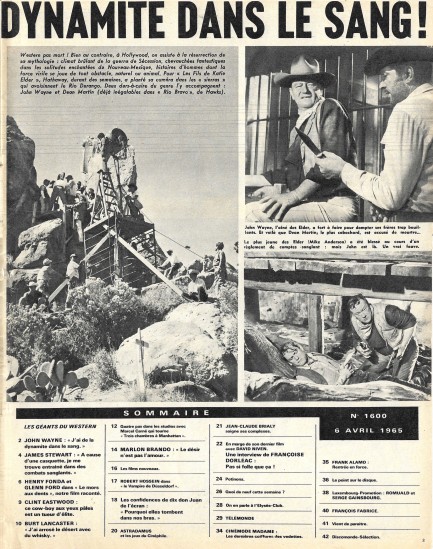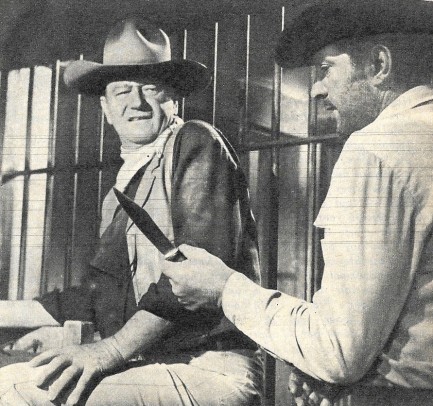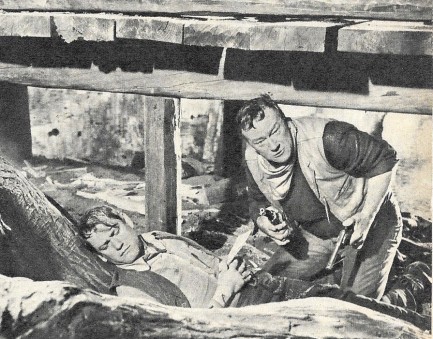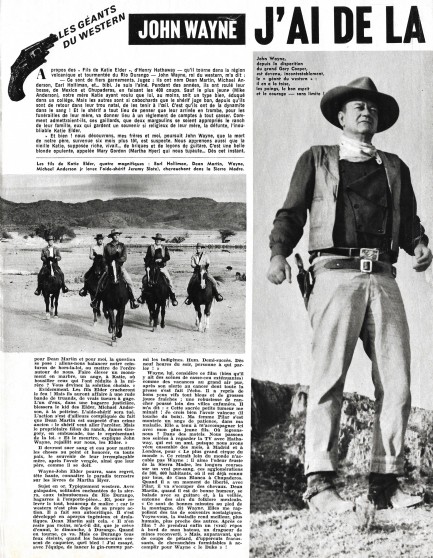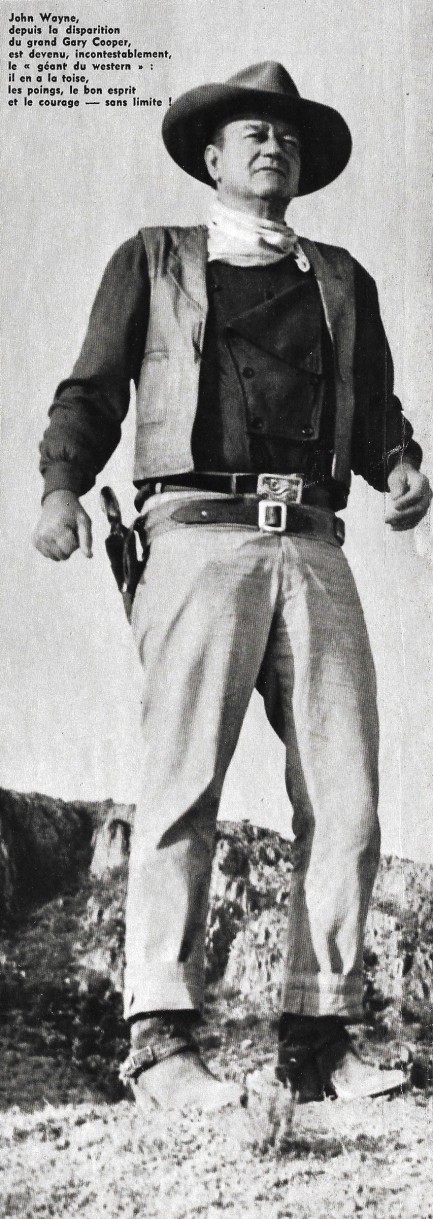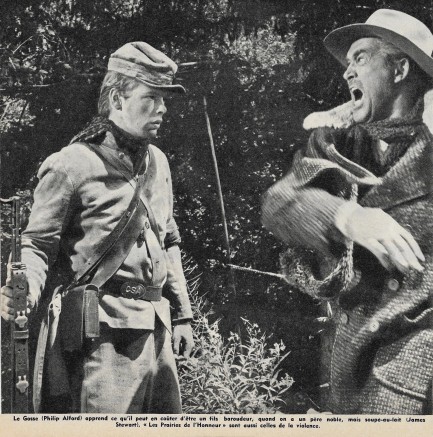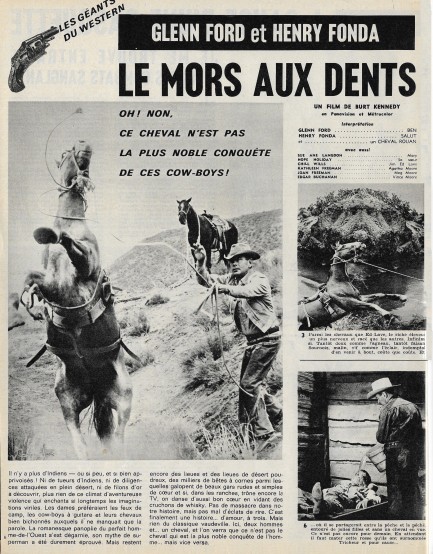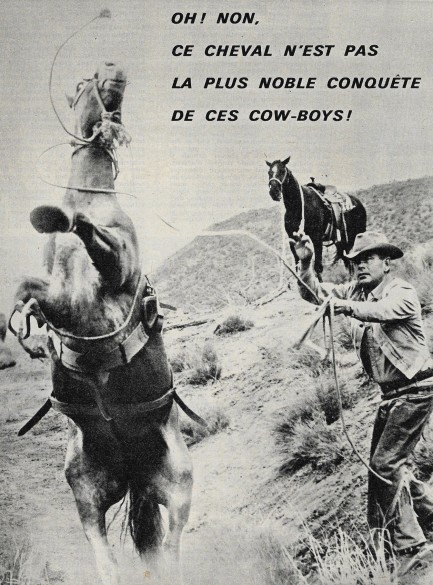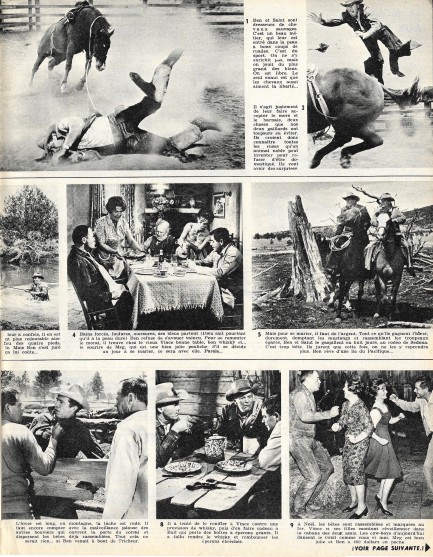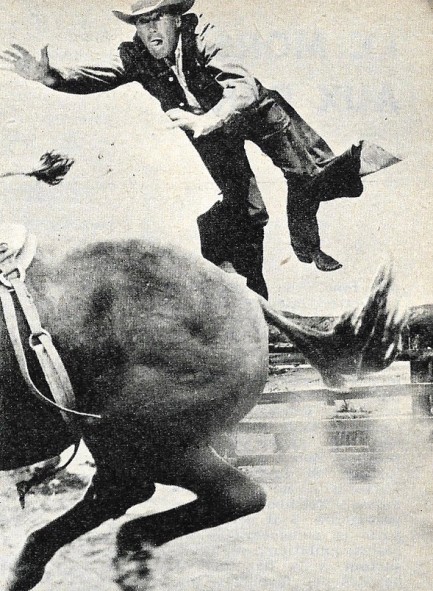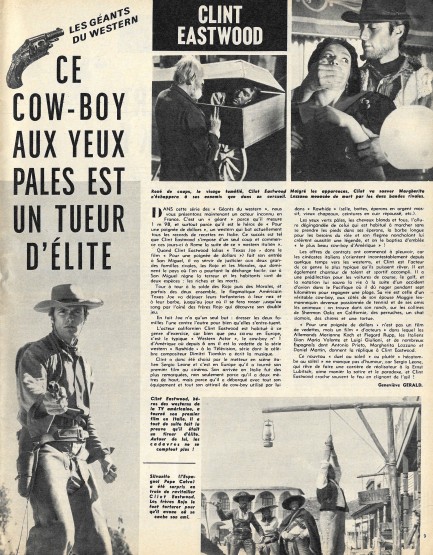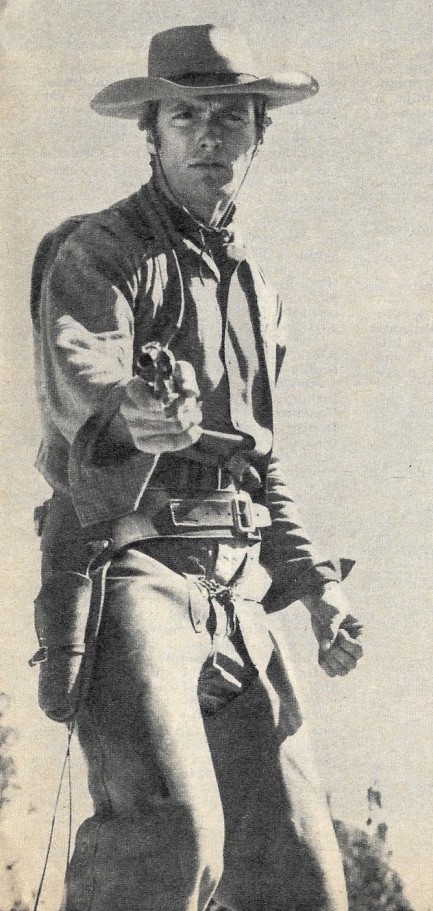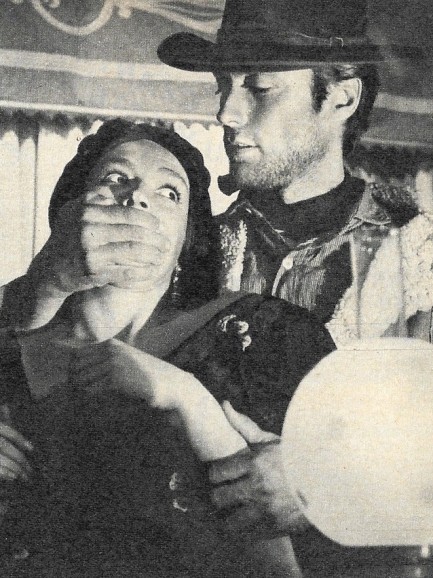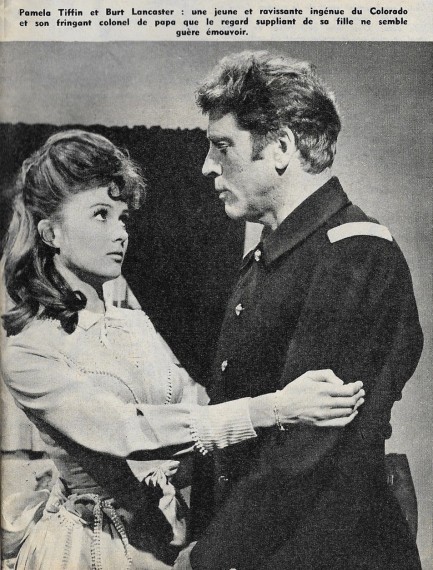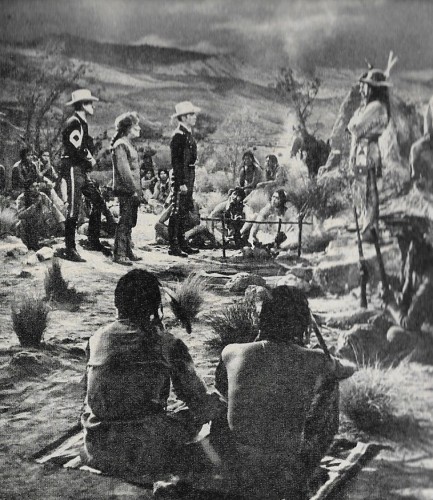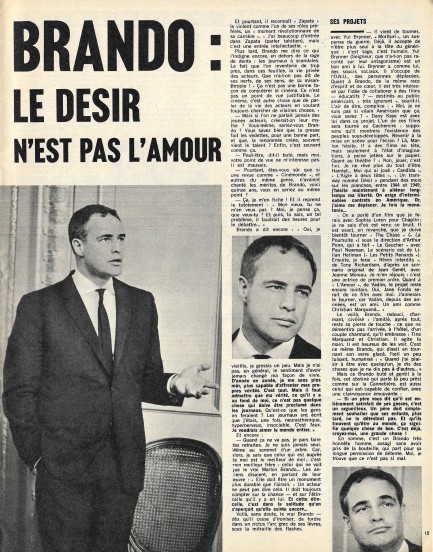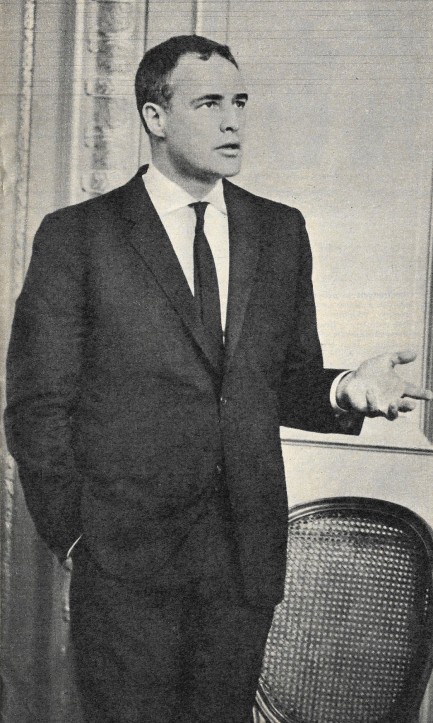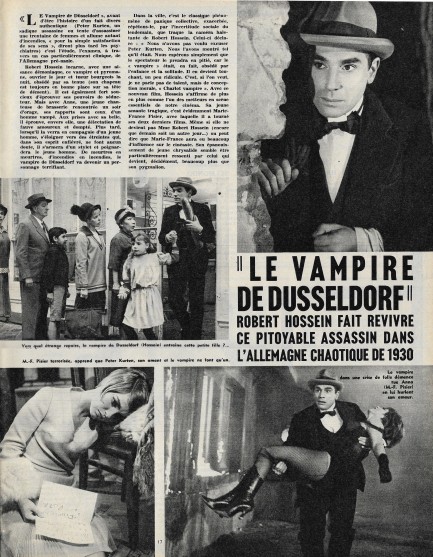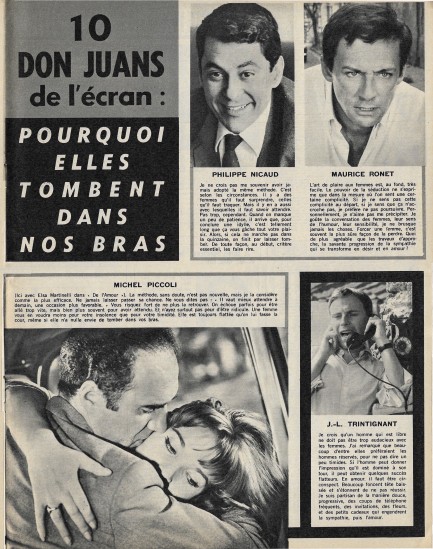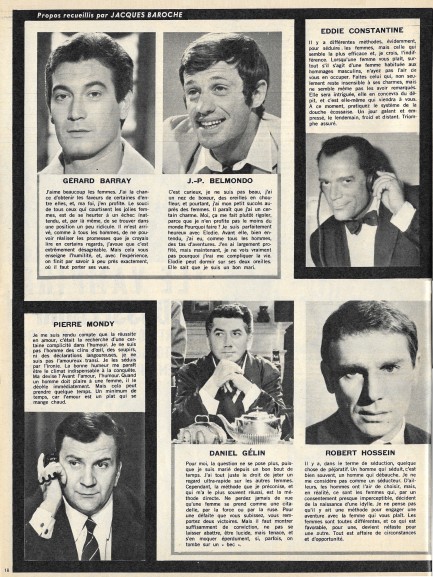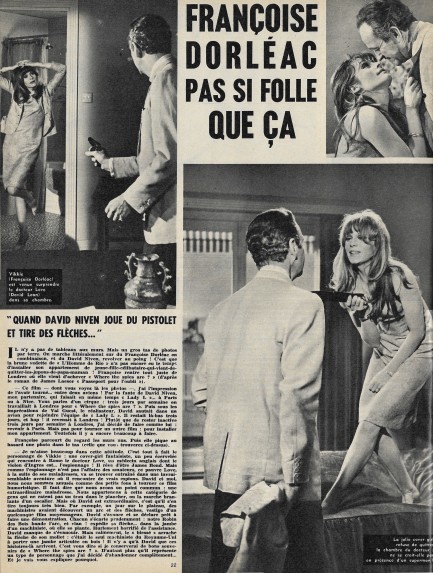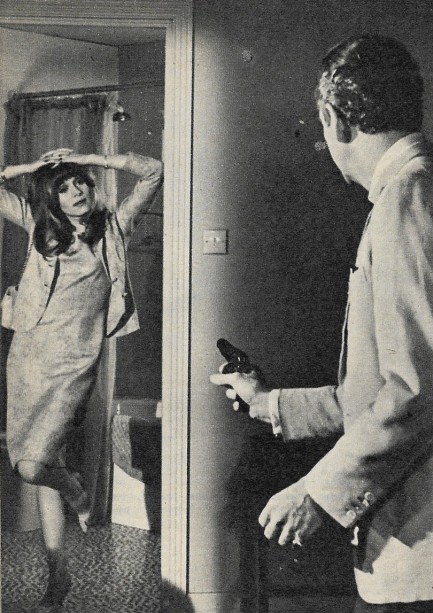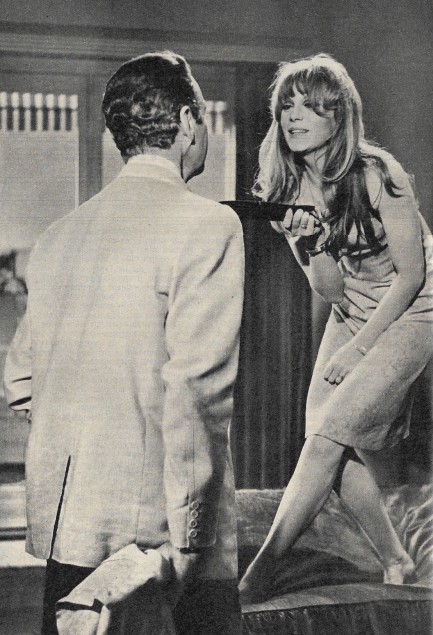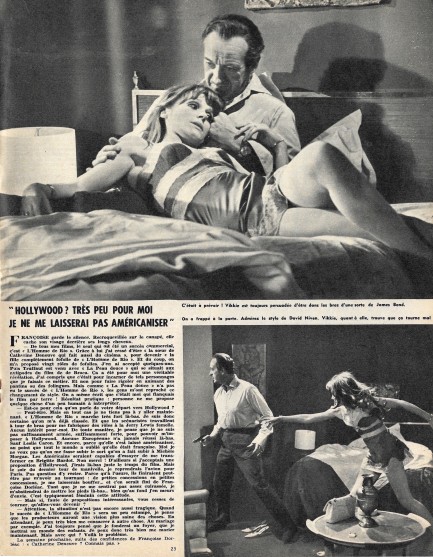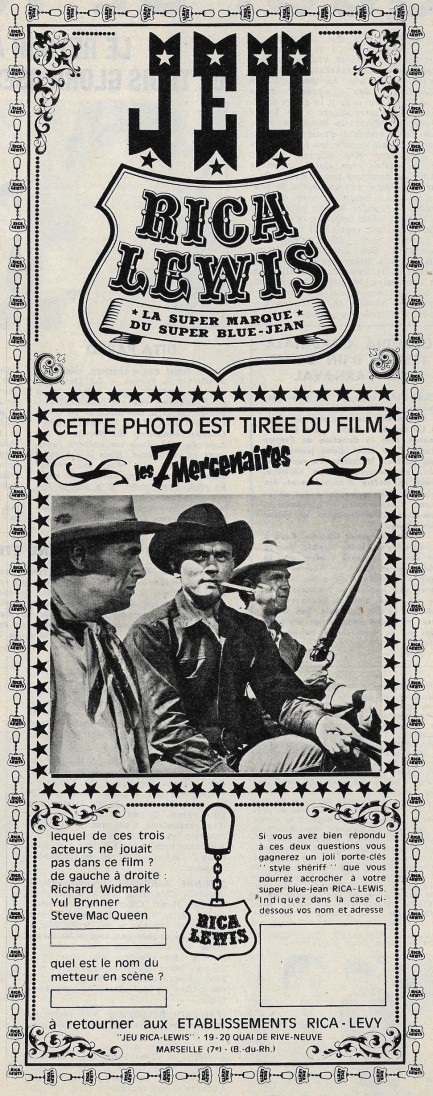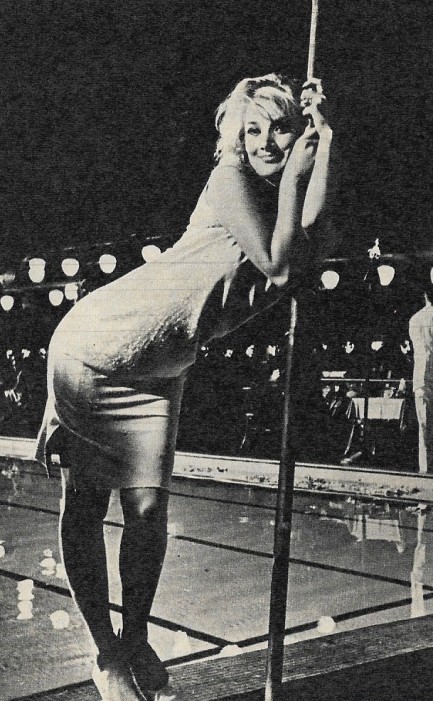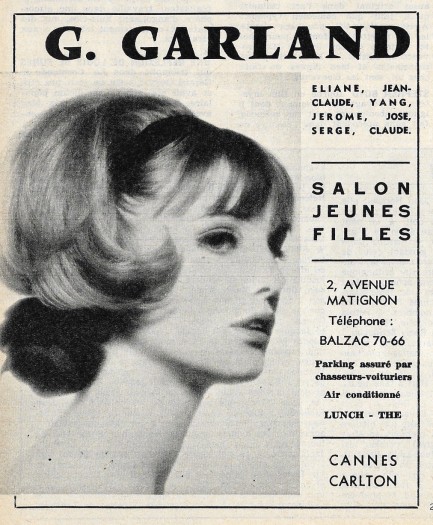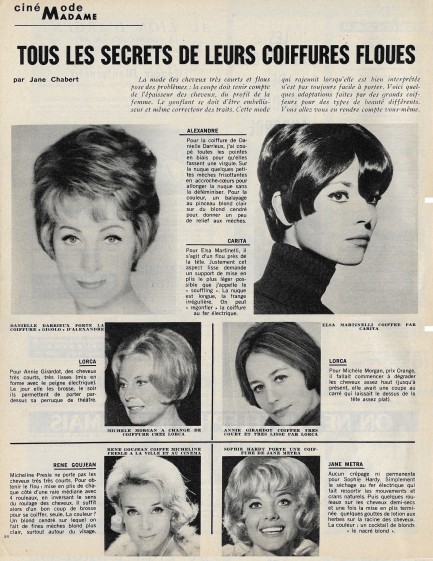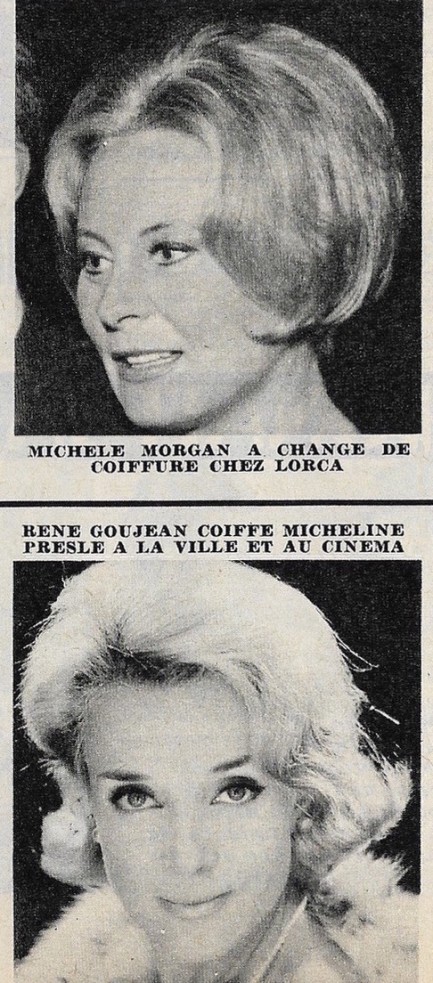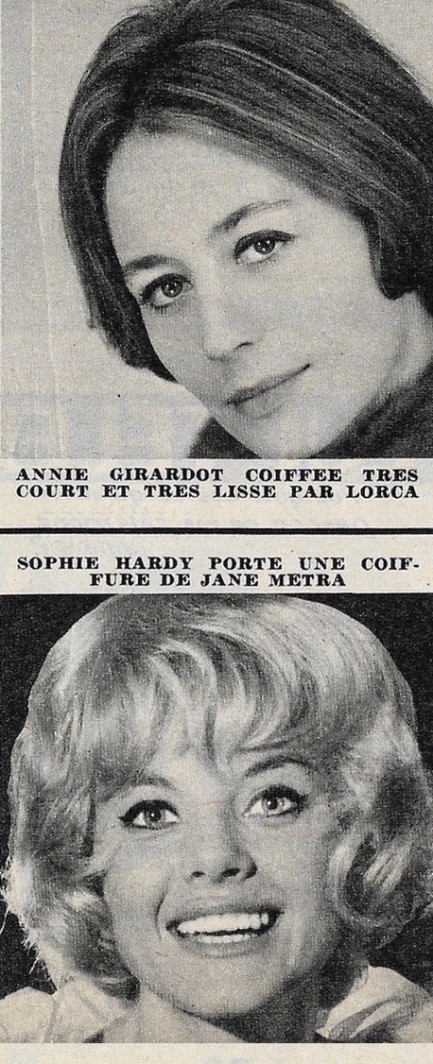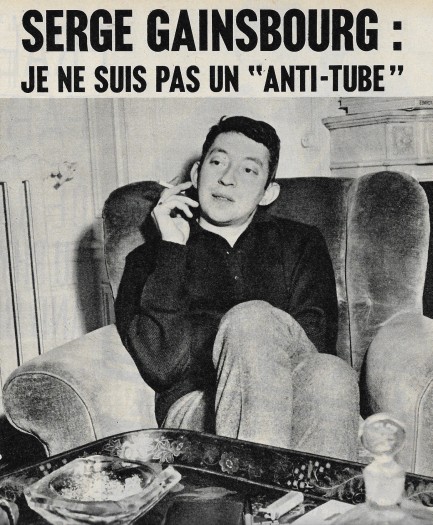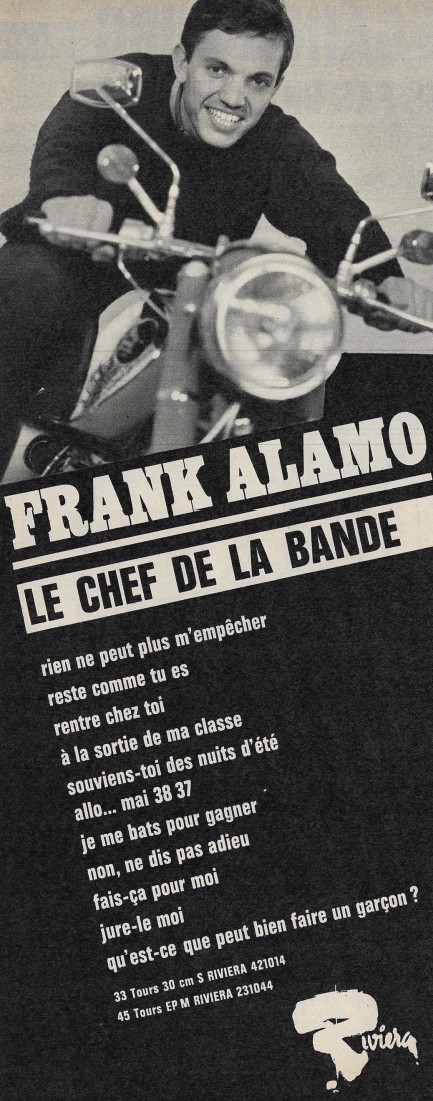 French magazine celebrates essential American film genre. 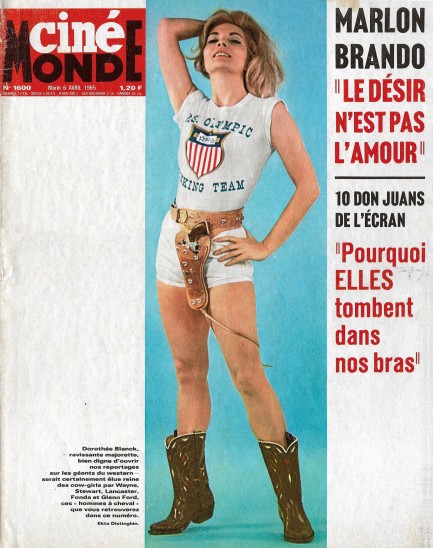
A few years ago we used this image of German actress Dorothée Blanck as a femme fatale, but didn't scan the rest of the magazine in which we had found her. By now you know why—the pages of these old film mags are large and we have to scan them in halves and put them together in Photoshop or GIMP, which is time consuming, something that's a real problem for lazy people like us. But here we are three years later and we've finally done it. Above is the full cover of the issue of Cinémonde—“cineworld” in English—from which Blanck came.
Cinémonde was first published in October 1928 and ran until being interrupted by World War II in 1940. Post hostilities the magazine reappeared, running from 1946 until 1968, taking another pause, running again from 1970 to 1971, and finally folding for good. This issue hit newsstands today in 1965. Like other European magazines of the era, the main attraction with Cinémonde is that its photos generally have not been seen online before. This issue was devoted to the American western, and the subjects include some of the biggest cowboy stars in cinema history, including John Wayne, Glenn Ford, Clint Eastwood, and Jimmy Stewart.
That's the first half of the issue. Afterward editors move outside the western milieu, and you get Marlon Brando, David Niven, Francois Dorléac, Barbara Bouchet, Serge Gainsbourg, hair secrets of the stars, the top ten Don Juans of French cinema, and more. Do we have other issues of this magazine? You bet. We own a group that includes Cinémonde, Ciné-Revue, and others. Will we ever scan them? Well, we make no promises at this point, but you never know—maybe we'll splash out for a bigger scanner and solve the problem with money instead of effort. Seems to work for everyone else. Thirty plus images below.
 Some are on the left and others are on the right, but her position on guns is in the middle. 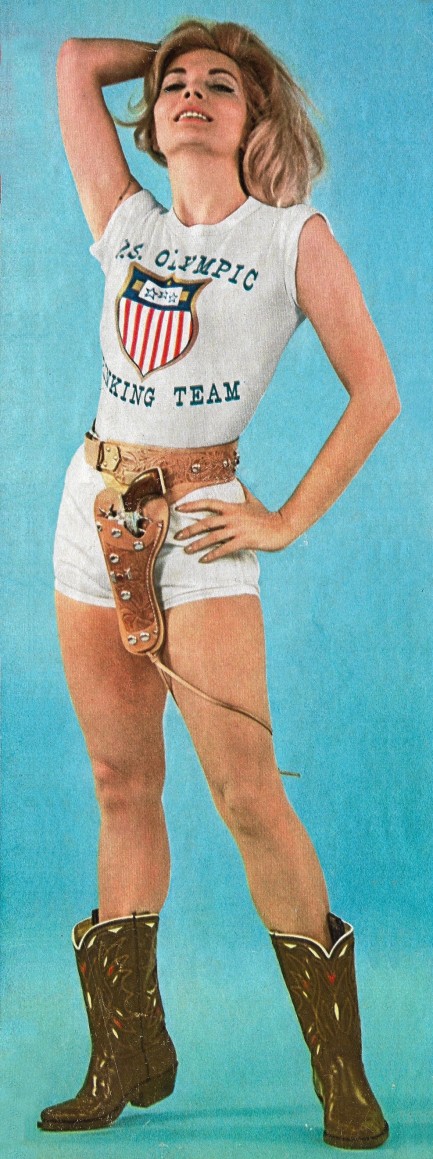
This image of German born French actress Dorothée Blanck appeared on the cover of France's Cinémonde magazine today in 1965. Blanck died in January at the age of 81 after decades in cinema, including roles in Jean-Luc Godard's Une femme est une femme, Jean Renoir's Elena et les hommes, and Jacques Demy's Les parapluies de Cherbourg. She came from the humblest of beginnings—born in prison in Aichach, where her mother was serving time for political crimes like numerous leftists resistant to the rising Nazis; shuttled around to various orphanages and institutions; not even given an official name for the first two years of her life. Her film career began in 1953 and, with occasional lulls, she worked often throughout her life, appearing in some forty films. Her last project, entitled Jours de France, or Days of France, is in post-production and is slated to hit cinemas sometime this year.
|
 |

The headlines that mattered yesteryear.
2003—Hope Dies
Film legend Bob Hope dies of pneumonia two months after celebrating his 100th birthday. 1945—Churchill Given the Sack
In spite of admiring Winston Churchill as a great wartime leader, Britons elect
Clement Attlee the nation's new prime minister in a sweeping victory for the Labour Party over the Conservatives. 1952—Evita Peron Dies
Eva Duarte de Peron, aka Evita, wife of the president of the Argentine Republic, dies from cancer at age 33. Evita had brought the working classes into a position of political power never witnessed before, but was hated by the nation's powerful military class. She is lain to rest in Milan, Italy in a secret grave under a nun's name, but is eventually returned to Argentina for reburial beside her husband in 1974. 1943—Mussolini Calls It Quits
Italian dictator Benito Mussolini steps down as head of the armed forces and the government. It soon becomes clear that Il Duce did not relinquish power voluntarily, but was forced to resign after former Fascist colleagues turned against him. He is later installed by Germany as leader of the Italian Social Republic in the north of the country, but is killed by partisans in 1945.
|

|
|

It's easy. We have an uploader that makes it a snap. Use it to submit your art, text, header, and subhead. Your post can be funny, serious, or anything in between, as long as it's vintage pulp. You'll get a byline and experience the fleeting pride of free authorship. We'll edit your post for typos, but the rest is up to you. Click here to give us your best shot.

|
|


